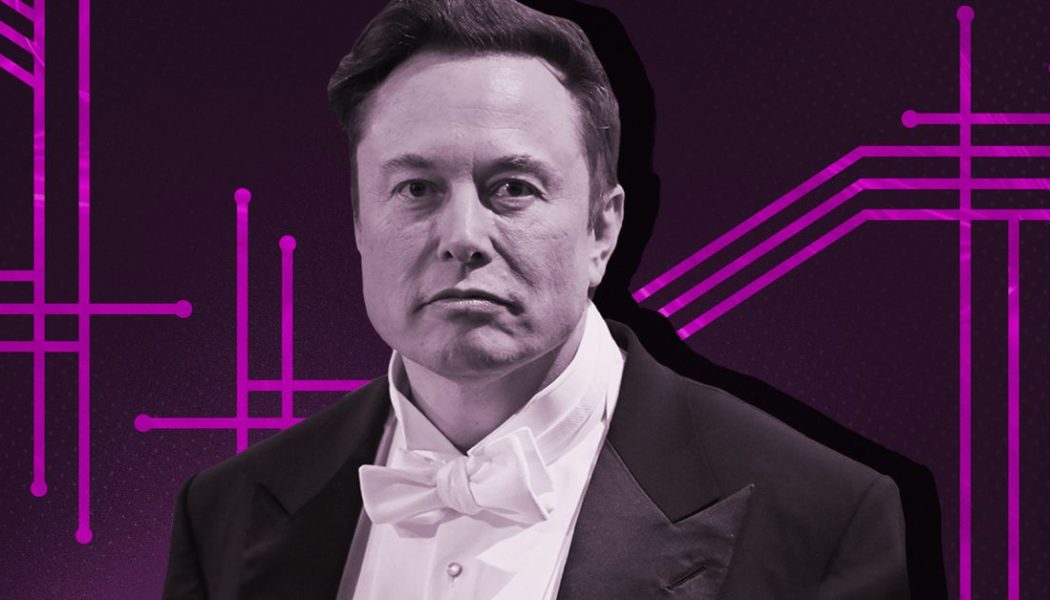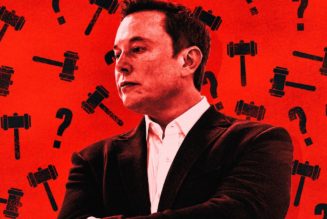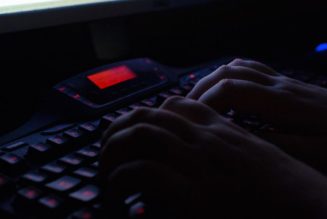/cdn.vox-cdn.com/uploads/chorus_asset/file/24085014/STK171_L_Allen_Musk_03.jpg)
Okay. So it looks like I don’t need to go to Delaware this October. There’s a stay in Elon Musk’s lawsuit against Twitter — which is meant to give the parties time to close the deal. If the deal doesn’t close, the court case is back on for November.
What a year this week has been! On October 4th, Musk filed a nice letter with the SEC saying that, actually, he did intend to do the Twitter deal, and he did intend to do it at $54.20 a share — just as long as the court proceedings stopped. Coincidentally I’m sure, Musk’s twice-delayed deposition was to take place October 6th.
“Yes, we also think Elon Musk should buy us for $54.20 a share in the deal he negotiated himself.”
Look, there are a lot of lawyers in my life, and I love you all dearly, but I know you are absolute psychopaths. (For instance, one of Musk’s firms, Quinn Emanuel, is known for its punishing hikes in exotic locations, which sometimes require helicopter rescues.) So I’m a little skeptical this is going to work out.
Imagine you are Twitter and you receive this SEC letter. You put out a carefully worded statement to the effect of “yes, we also think Elon Musk should buy us for $54.20 a share in the deal he negotiated himself.” And then you tell Musk, “Okay, prove it’s for real this time.” Maybe that means you need to see some money move hands. Maybe that means you want escrow. Maybe you want to amend legal agreements. I don’t know.
What I do know — as The Chancery Daily has observed — is that the docket slowed way down. Usually when I leave the gym in the morning, I have a slight panic attack as I look at all the emails I’ve gotten about the filings. This week, crickets. “Chance” has a rosy take on the situation: something serious must be happening. But Musk loves to fuck with people, especially lawyers.
Musk had been scrambling to get a few bucks knocked off the deal price, which would have let him save some face in all this
It’s curious that The New York Times and The Wall Street Journal dropped stories nearly simultaneously on October 5th about Musk offering Twitter a lower price than $54.20 in negotiations. Reading between the lines, Musk had been scrambling to get a few bucks knocked off the deal price, which would have let him save some face in all this; according to the Times, he was, at one point, asking for a 30 percent discount.
Usually sources for these stories are lawyers or bankers who just want everyone to know they’re involved; since these stories make Musk look kinda desperate, I’m guessing the sourcing is on the Twitter side. My guess is further bolstered by this graf in the Times story:
Twitter is considering a range of options for adding certainty to the deal. They include court supervision of the closing process to ensure that Mr. Musk follows through on his commitment, and requesting that Mr. Musk pay an interest fee to compensate for the delays in the closing process, sources familiar with the talks said.
Okay: who benefits from this information? Well, Twitter, which has effectively communicated, “Hey, we’re not Charlie Brown. We need someone other than Lucy to hold the football.” Also, Twitter absolutely does not want a new deal price. So the news that the letter about the original price went out to Twitter Monday suggests Twitter won, and now its lawyers are taking a public victory lap.
The problem with a new deal price is that the shareholders have already approved the old one
Alex Spiro, Musk’s lawyer, claims that Twitter was willing to do the deal at a lower price under certain “self-serving” conditions. I wonder what those conditions might have been. Like, “Hey, Elon, we’ll do this at $40 billion if you put $20 billion in escrow, and if you fail to close, we get to keep the $20 billion!”
The problem with a new deal price is that the shareholders have already approved the old one, and you’d have to go back to them with the new, worse, deal. The upside of taking a buck or two off the deal price is certainty — a thing investors generally like — and avoiding the trial, which will expose the inner workings of Twitter to lookie-loos like me. And if I have learned anything about social networks, it’s that they’re generally so large that it’s not difficult to find embarrassing stuff in any set of documents that are released.
It takes some time to close a deal — Bloomberg’s Matt Levine helpfully explains this in more detail, if you’re interested in this kind of thing — so maybe the delays are about, I don’t know, getting the money together.
But there appear to be other hiccups, Bloomberg reports. See, the letter we all saw agreed to do the deal “‘pending receipt of the proceeds of the debt financing,’” the story says. “The original deal didn’t contain such a contingency.” Tricksy!
“Don’t worry, we pinky swear we’ll do the deal” is quite a thing to say when you have capriciously tried to back out once
And then later, Musk’s attorneys filed a motion — notably absent any cooperation from Twitter’s attorneys — to stay the trial. Musk’s lawyers claim that his SEC letter mooted the trial. This is more clown shit. “Don’t worry, we pinky swear we’ll do the deal” is quite a thing to say when you have capriciously tried to back out once, resulting in the current lawsuit. Twitter said as much in its own filing opposing the stay.
McCormick granted the stay anyway. If the deal doesn’t close by October 28th, though, the trial’s back on in November.
While all this was going on, Musk managed to create an international shitposting incident by echoing Silicon Valley isolationism on Twitter. I do not pretend to know enough about the Russian invasion of Ukraine to begin to address Musk’s solution on its merits. Vibe-wise, however, I gotta say that Musk united Russia and Ukraine in dunking on him so, like, probably not a realistic solution?
This annoyance, much like some of the annoyances in Twitter v. Musk, appears to have some roots in All-In, a Silicon Valley podcast that has been giving updates on Ukraine, where “the besties” fret about the war. In the most recent episode, VC David Sacks opined on “off-ramps” to end the war because, otherwise, the markets won’t have bottomed out. (He also wrote a curious piece in The American Conservative in which he suggests the main problem with most of the commentariat is that they simply do not play enough high-stakes poker.)
These are the norms Musk deals with. I don’t think he was expecting the degree of blowback — even Lithuania dunked, and their style of dunking is usually basketball! — because he was just echoing the common wisdom in his circles. And in his circles, he gets to do whatever he wants. Didn’t you see the texts?
Annoying a judge is strategically dumb
Levine’s take is that Musk will eventually own Twitter, whatever the outcome here is. He thinks it’s possible there will be more shenanigans. There’s a certain “I’m not touching you” quality to the behavior here — technically within the lines of what’s allowed, but still annoying.
The question, though, is who’s getting annoyed. One possible answer is Chancellor McCormick, particularly given the pointed tone of her orders this week. Incidentally, there’s a separate case about Musk’s pay package at Tesla that will be coming in front of her as well.
Between this maneuvering and McCormick’s finding earlier this week that Musk likely had irretrievably deleted Signal messages relevant to the Twitter suit, Musk may find McCormick is less sympathetic to him in that other case. Annoying a judge is strategically dumb. Annoying this judge is even dumber. But Musk generally has gotten to where he is by doing whatever he wants. I’m canceling my plane ticket, but I wonder if I will find myself in Delaware in November anyway.









